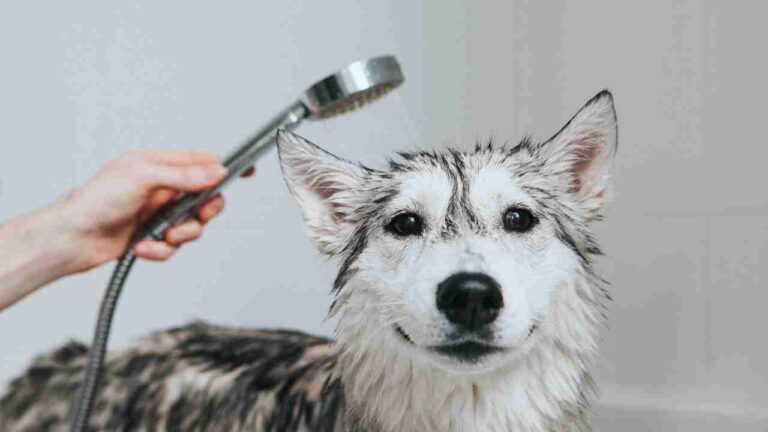How To Care For Your Pregnant Cat
As your pregnant cat approaches the end of her pregnancy, it can be hard to know what to expect. Your vet will probably explain the stages of the pregnancy and help you decide the best course of action for your cat, but this blog article will go into detail about a few things you might not have known about taking care of a pregnant cat and their kittens.
Feeding your pregnant cat
When preparing to have a litter of kittens, many pet owners are concerned about what they should feed their pregnant cats. While there is no definitive answer, most veterinarians recommend feeding a pregnant cat the same food as her normal routine. However, if your cat is not eating or appears to be unwell, you may need to make some adjustments to her diet.
A pregnant cat’s body needs more protein than usual and a good quality diet should provide at least 25% of her daily caloric intake. You can give your cat canned or dry food, but be sure to include plenty of fresh water in her diet as well. Avoid feeding your cat foods high in sugar or fat, which can be harmful to her developing kittens.
Keep in mind that a pregnant cat’s energy level may be lower than usual, so make sure she has plenty of rest and playtime as well. Kittens born to mothers who are well-nourished and rested will be healthier and more active than those who are not.
Cat Stroller For A Walk
Looking for a way to take your pregnant cat for walks without having to worry about her getting hurt? Check out our guide on how to care for your pregnant cat while using a cat stroller!
When you’re looking for the perfect product that cat owners can use to take their cats for walks, there are a few factors that you should consider before making your purchase. We’ve put together a list of items to think about when purchasing a cat stroller!
Your Cat’s Overall Well-Being: Each cat is different and therefore each one will react differently to being used as an exercise aid. Some cats don’t like being placed in awkward positions, while others may not mind so much. However, if your cat seems distressed by placing it in the stroller then it might be best not to use one until they get better
Toilet training your pregnant cat
There is no need to worry about your pregnant cat when it comes to using the toilet. In fact, following these simple steps will help ensure a smooth transition for both you and your feline friend.
The first step is to make sure that your cat has a litter box in which to relieve herself. Many cats will start using the toilet shortly after they are spayed or neutered, so providing them with an extra-large litter box is not necessary. If your cat does not use a litter box, provide her with one and place it in an easily accessible area. When she is ready to use the litter box, she will let you know by leaving urine or feces in the box.
Once your cat is using the litter box regularly, you can begin teaching her how to use the toilet. Place some of her regular food in the toilet and wait until she relieves herself. Once she starts doing this on her own, praise her and give her a treat. You can gradually increase the quantity of food placed in the toilet over time until she’s toileting on her own all the time.
Soothing your pregnant cat
As your cat becomes pregnant, her body undergoes many changes. She may become more active and consume more food than usual. Her litter box might become more frequent and she might even start to mark her territory with urine or feces. While all of these changes can be fun for you and your cat, they can also be a challenge for your veterinarian if something goes wrong. Here are some tips on how to care for your pregnant cat:
– Offer plenty of fresh, clean water in a dish or two throughout the day. Cats are especially prone to getting dehydrated during pregnancy, so make sure she’s drinking enough.
– If your cat is eating a lot more than usual, make sure her food is high in protein and low in carbohydrates. These foods will help keep her energy levels up and prevent any weight gain.
– Keep your cat’s environment clean and tidy. This includes her litter box (make sure it’s constantly cleaned) as well as any areas she spends a lot of time, like the edge of the bed or the top of the refrigerator. Avoid leaving food out where your cat can reach it; this will only encourage her to overeat.
– Give your cat small amounts of treats. Try to use only the food that you know she likes, and be sure to give them small pieces or break them into smaller pieces. Giving your cat treats will help her feel full, especially if her stomach is already full.
– Keep an eye on your cat’s body weight. If she starts gaining more than a pound a week, it could be a sign of dehydration or an eating disorder and needs to be looked into by a vet right away. If you notice that your cat has been vomiting for more than two hours in the morning (or longer than usual), it’s time to take her in for a checkup.
Vaccination
One of the most important things you can do to help your pregnant cat is to make sure she is vaccinated. Make sure your cat is up-to-date on her vaccinations, and keep her current on her rabies vaccine as well. Rabies is a serious virus and can cause death in cats if not treated promptly.
Some other Things to Remember:
Keep your pregnant cat indoors as much as possible. Outdoors, she may be exposed to parasites that can harm her baby.
Feed your pregnant cat a high-quality diet, made specifically for pregnant cats. Include plenty of fresh water in her diet, too.
Keep a close eye on your pregnant cat; if she seems sick or injured, take her to the vet immediately.
The birthing process and what to expect in the days following delivery
Life as a pregnant cat can be exciting and full of anticipation. However, the birthing process can be frightening for both the mother and her kittens. Here are some tips on how to care for your pregnant cat during the days following delivery:
-Monitor the mother and her kittens closely throughout the birthing process. If there is any sign of danger or distress, take action immediately.
-Bath her and her kittens after delivery with warm water and mild soap. Gently dry them off with a soft towel. Do not use any type of chemical bath products or towels, as these can harm the kittens.
-Provide plenty of fresh food and water, especially in the first few days following birth. Offer small amounts gradually over time to help the mother regain strength.
-Keep your cat’s environment as warm and calm as possible. Provide a comfortable bed or nesting box, and keep drafts out of the home. Cats usually prefer to rest in dark, quiet surroundings after giving birth.
What do you do if your pregnant cat dies?
If your cat dies during her pregnancy, there are a few things you can do to prepare for the funeral. Make sure you have all of the necessary documents, such as a death certificate, veterinarian’s report, and pictures of your cat if possible. If your cat was spayed or neutered, make sure to get her microchip information so that her offspring can be identified.
Once you have all of the information together, it’s time to plan the funeral. You’ll want to get contact information for the vet who performed your cat’s euthanasia and any other veterinarians who treated her while she was alive. You’ll also want to gather any relevant paperwork, such as health records and insurance policies. Finally, plan a time for everyone to meet and discuss the arrangements.
also read: Here is everything about Owlkitty YouTube Cat Star






